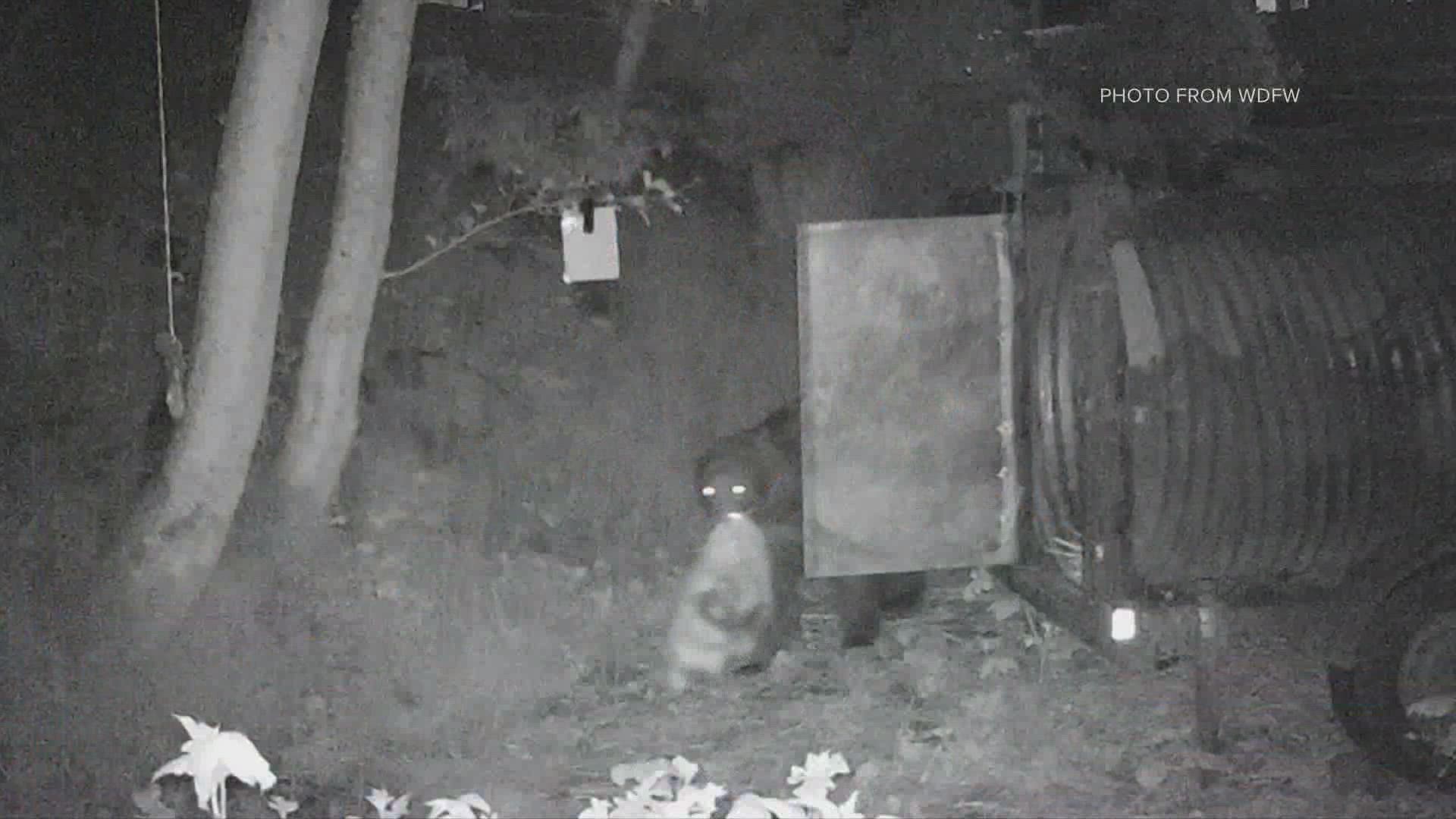ISSAQUAH, Wash. — A black bear that was getting into garbage and other "human-provided food sources" for more than three years in the Squak Mountain area was killed by the Washington Department of Fish and Wildlife (WDFW) earlier this month.
WDFW had been attempting to capture the bear since April due to its habit of getting into "improperly stored garbage" in suburban areas, backyards and private properties.
"He was shown on camera with a garbage bag in his mouth right before entering the trap," said Chase Gunnell with WDFW.
On Friday, May 20, the bear was captured in a culvert trap set out by WDFW. Agency biologists were alerted to the bear's capture and responded to the trap early that morning.
Biologists determined the bear was seriously overweight due to "unnaturally high calorie consumption from non-natural food sources." While an average five-year-old black bear would typically weigh around 200 pounds, the bear weighed in at 352 pounds, according to wildlife officials.
"What was significant was how overweight the bear was and this clear pattern of behavior of getting into unsecured garbage, bird feeders, doing things that we really don't like to see. Honestly, it wasn't the bear's fault," said Gunnell.
Additionally, officials determined the bear would continue feeding on garbage even if it was relocated to a different area. In adult bears, relocation is less successful and may not be appropriate when they become dependent on humans for food, according to the WDFW.
Wildlife biologists in consultation with agency bear experts "made the tough decision to lethally remove the animal due to its behavior and condition."
WDFW urged Washington residents and visitors to properly secure their garbage to help prevent situations where bears become habituated to human-provided foods. WDFW said less than 50 percent of people who live near Squak Mountain use bear-resistance containers for trash. The department wants to see their use increased.
"Washington really prides itself on a place that's close to nature and has abundant wildlife and that comes with the responsibility to avoid habituating these animals to people," said Gunnell.
When bears become aware of a food source, they return to that area and become less wary of people, which creates a safety concern, WDFW officials said. Using bear-resistant garbage cans, keeping garbage inside the garage and removing other attractants like bird feeders in the spring help to prevent bears from becoming conditioned to human food sources.

